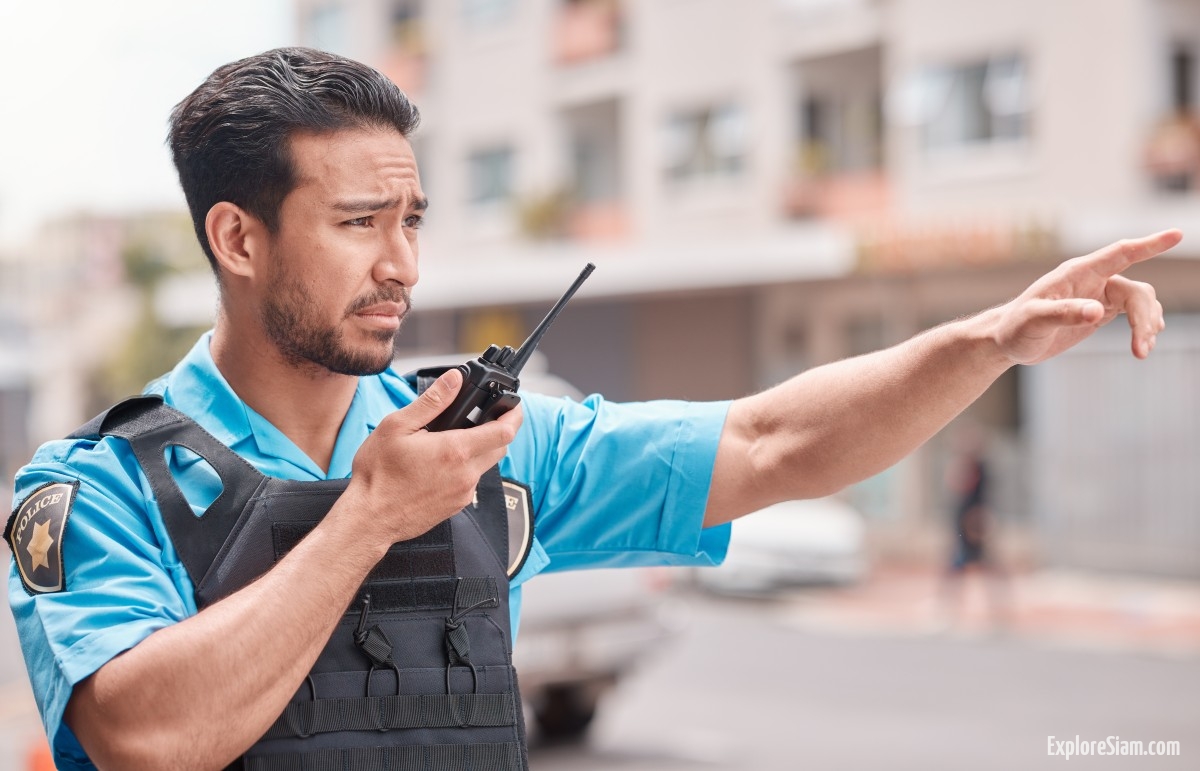The Royal Thai Police, often referred to as the Thailand Police, plays a crucial role in maintaining law and order throughout the Kingdom of Thailand. With a rich history and an extensive network of officers, the Thai police force is committed to ensuring the safety and security of both residents and visitors. This article explores the structure, functions, challenges, and initiatives of the Thailand Police in their mission to uphold security and order.
The Royal Thai Police, established in 1915, is one of the largest police forces in Southeast Asia, with over 230,000 officers. Its headquarters are located in Bangkok, the capital city of Thailand. The force is divided into several key divisions, each specializing in different aspects of law enforcement. These divisions include the Central Investigation Bureau, the Metropolitan Police Bureau, the Border Patrol Police, and the Tourist Police, among others. Each division has specific responsibilities, ranging from criminal investigations to maintaining public order and providing assistance to tourists.
One of the primary functions of the Thailand Police is to enforce the law and maintain public order. This involves a wide range of activities, including patrolling streets, responding to emergencies, investigating crimes, and arresting offenders. The police are also responsible for traffic management, ensuring the smooth flow of vehicles and preventing accidents. In recent years, the Thai police have adopted advanced technologies and modern policing methods to enhance their efficiency and effectiveness.
The Tourist Police, a specialized unit within the Royal Thai Police, plays a vital role in ensuring the safety of millions of tourists who visit Thailand each year. Recognizable by their distinctive uniforms and bilingual capabilities, the Tourist Police are stationed in popular tourist destinations such as Bangkok, Phuket, Pattaya, and Chiang Mai. They provide assistance to tourists, help resolve disputes, and address any security concerns that may arise. Their presence is a reassuring factor for visitors, contributing to the overall positive experience of traveling in Thailand.
Despite their extensive efforts, the Thailand Police face numerous challenges in their mission to maintain security and order. One of the major issues is the prevalence of drug-related crimes. Thailand has been a significant transit point for illegal drugs, particularly methamphetamine, which poses a serious threat to public safety. The police have been actively involved in combating drug trafficking and abuse, conducting raids, and arresting individuals involved in the drug trade. However, the scale of the problem requires continuous and concerted efforts.
Corruption within the police force is another significant challenge that has garnered public attention. Instances of bribery and misconduct have undermined public trust in the police. To address this issue, the Thai government and the Royal Thai Police have implemented various reforms and measures aimed at promoting transparency and accountability. These include stricter disciplinary actions against corrupt officers, enhanced training programs, and the establishment of anti-corruption units within the police force.
Community policing is an essential aspect of the Royal Thai Police’s strategy to ensure security and order. By fostering strong relationships with local communities, the police can better understand the needs and concerns of the public. Community policing initiatives involve regular interactions between officers and residents, community outreach programs, and collaborative efforts to address local issues. This approach not only helps in preventing crime but also strengthens the bond between the police and the community, enhancing overall safety and security.
In recent years, the Thailand Police have also focused on improving their capabilities in dealing with cybercrime. With the rapid advancement of technology, cybercrimes such as hacking, online fraud, and identity theft have become more prevalent. The police have established specialized units to investigate and combat cybercrime, working closely with international agencies and organizations to track down and apprehend cybercriminals. Public awareness campaigns are also conducted to educate people about safe online practices and the risks associated with cybercrime.
Training and development are critical components of the Royal Thai Police’s efforts to maintain a highly skilled and professional force. New recruits undergo rigorous training programs that cover various aspects of law enforcement, including physical fitness, firearms training, legal knowledge, and ethical conduct. Continuous professional development programs are also in place to ensure that officers stay updated with the latest policing techniques and technologies. International cooperation and exchange programs further enhance the skills and knowledge of Thai police officers.
The Royal Thai Police also play a significant role in disaster management and emergency response. Thailand is prone to natural disasters such as floods, earthquakes, and tsunamis. In such events, the police work alongside other emergency services to provide rescue and relief operations, ensuring the safety and well-being of affected individuals. Their prompt and coordinated response during emergencies demonstrates their commitment to public service and safety.
The Thailand Police are dedicated to upholding the rule of law, protecting citizens, and maintaining public order. Despite facing numerous challenges, they continue to adapt and evolve to meet the changing needs of society. Through their efforts in law enforcement, community engagement, and international collaboration, the Royal Thai Police remain a cornerstone of security and order in Thailand. Their ongoing initiatives and reforms reflect their commitment to building a safer and more secure environment for everyone in the Kingdom of Thailand.





